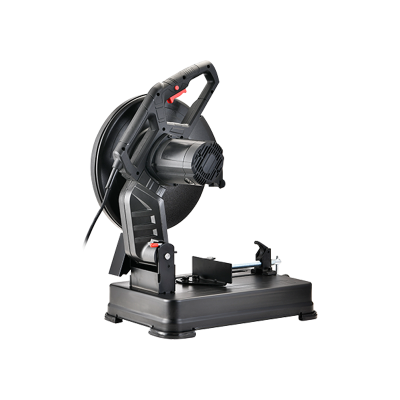
Selecting a reliable Metal Cutting Machine Manufacturer is a key step for any business that relies on metal processing. The right manufacturer can provide machines that are durable, efficient, and suited to specific production needs. However, with so many options available, making the right choice can feel overwhelming.
1. Assess Product Range and Specialization
The first step is to examine the manufacturer's product range. Some manufacturers focus on a variety of metal cutting machines, including band saws, circular saws, and cold cutting machines, while others specialize in a specific type. Understanding their specialization helps determine whether their machines match your production requirements. A Metal Cutting Machine Manufacturer with a clear focus on the type of machinery you need can provide better support and technical knowledge.
2. Evaluate Quality Control Processes
Quality control is essential when investing in heavy machinery. A trustworthy Metal Cutting Machine Manufacturer will have clear procedures for inspecting components, assembling machines, and testing performance. This may include blade calibration, motor testing, and safety checks. Ask about their testing protocols and how they ensure that each machine operates reliably under real-world conditions. Manufacturers who prioritize consistent quality can reduce downtime and maintenance issues.
3. Consider Technical Support and After-Sales Service
Machines require maintenance and occasional repairs, so after-sales service is an important factor. Check if the manufacturer provides training, manuals, spare parts, or remote support. A Metal Cutting Machine Manufacturer that offers responsive technical assistance can save time and prevent costly production interruptions. Additionally, reliable communication and clear warranty terms are indicators of a manufacturer's commitment to customer satisfaction.
4. Review Reputation and Experience
Experience matters when selecting a manufacturer. Look for customer reviews, case studies, or references from other businesses in similar industries. A Metal Cutting Machine Manufacturer with years of experience is likely to have encountered various challenges and can offer solutions that newer companies may not provide. While reputation alone isn't the only factor, it can help validate claims about machine durability, efficiency, and service.
5. Analyze Customization and Flexibility
Different production environments have different needs. Some manufacturers allow customization of machine features, such as cutting capacity, motor power, or automation options. Working with a Metal Cutting Machine Manufacturer that can adjust their machines to your specific requirements ensures better integration into your production line. Flexibility in design and configuration often leads to higher operational efficiency and reduces unnecessary costs.
6. Check Compliance with Safety and Industry Standards
Safety and compliance are non-negotiable. Verify that the manufacturer adheres to relevant industry standards and certifications for electrical components, mechanical safety, and operational reliability. Machines from a compliant Metal Cutting Machine Manufacturer are less likely to cause accidents or fail inspections, providing peace of mind and protecting your workforce.
Choosing the right Metal Cutting Machine Manufacturer involves more than just looking at price. Evaluating their product range, quality control, technical support, reputation, customization options, and safety standards can help ensure a reliable long-term partnership. By carefully considering these factors, businesses can invest in machines that meet their production needs and maintain consistent performance over time. A thoughtful selection process reduces operational risks and contributes to smoother manufacturing operations.
